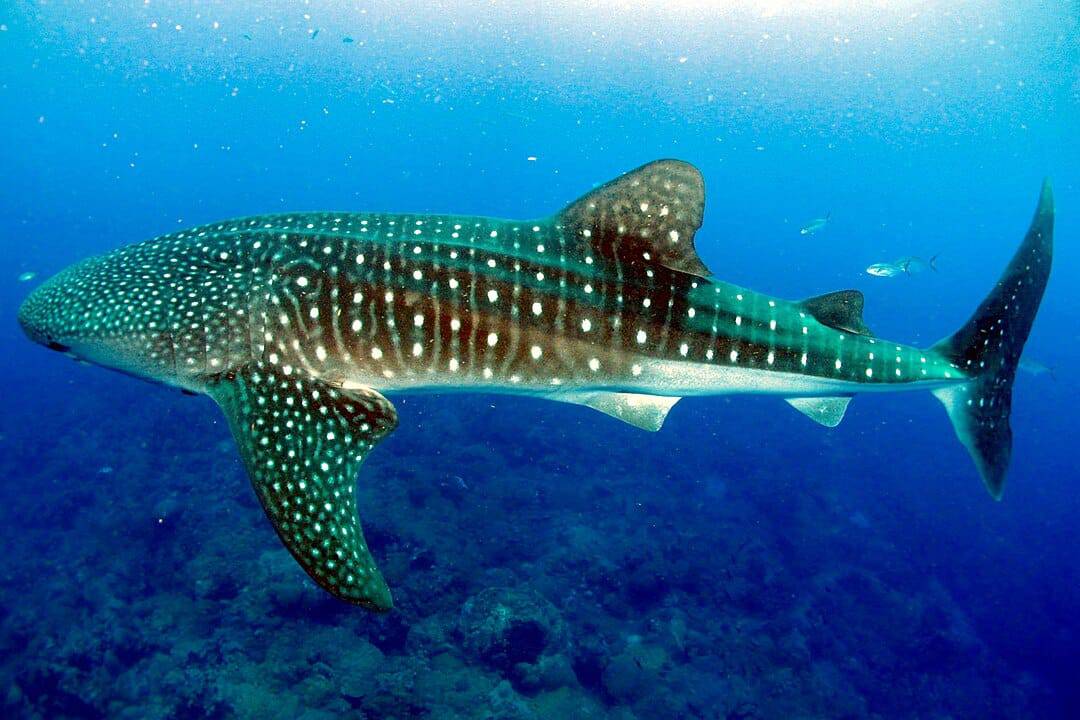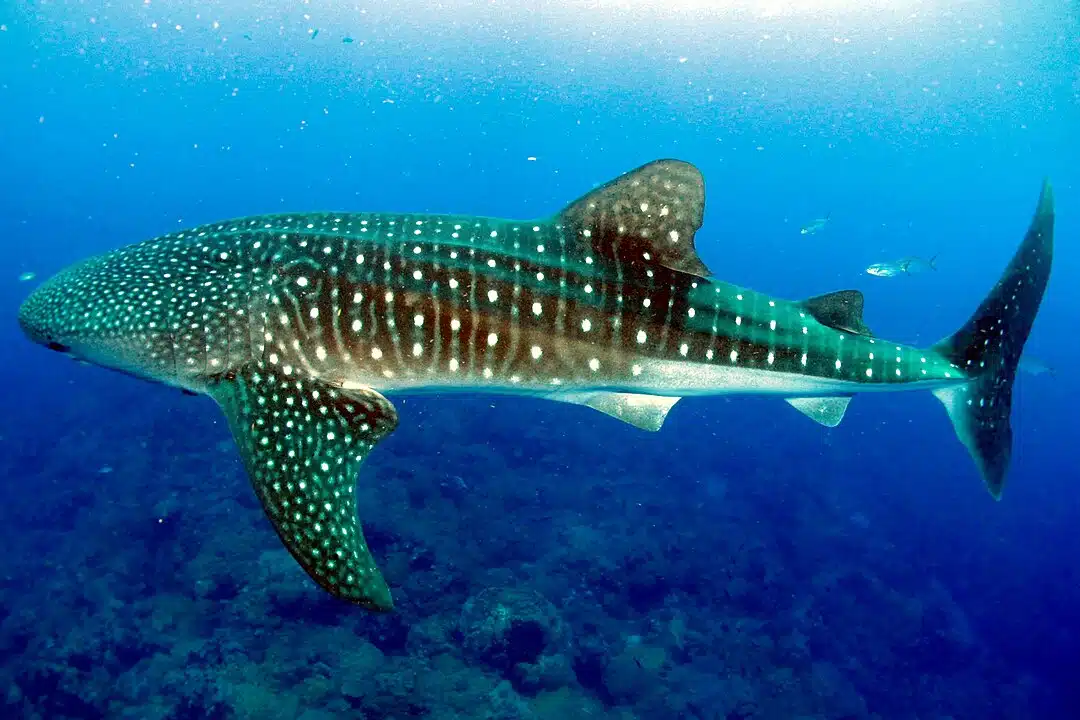In an exceptionally rare occurrence, a juvenile whale shark was spotted nearly beached in the icy waters off Clifton Fourth Beach in Cape Town. A witness at the scene reported that the whale shark, found in shallow waters, was gently guided back into the ocean by several beachgoers and a lifesaver.
The whale shark swam away slowly after being led back to deeper waters. In the time following this incident, there have been numerous sightings of the whale shark lingering near the shoreline. These observations, particularly its breaching, suggest that the whale shark, not accustomed to the colder waters, showed signs of exhaustion.
Rare Sighting
Whale sharks (Rhincodon typus) are typically found in tropical waters and are known for their migratory patterns. According to the Department of Climate Change, Energy, the Environment, and Water of Australia, these gentle giants have a broad distribution in the warm waters of the Atlantic, Pacific, and Indian Oceans. However, they are rarely sighted in the colder waters off the coast of South Africa, making this incident at Clifton Beach highly unusual.
Although this sighting of the whale shark is extremely rare, the shark has been documented in Cape Town waters, with the first documentation in Cape Town dating back to 1828 when Andrew Smith described a 4.6-meter specimen. Additionally, the region’s coastal manager explains that on the East Coast of South Africa, whale sharks are occasionally swept up by strong currents, which carry them into the cold Atlantic waters near Cape Town, often leading to instances where they attempt to beach themselves.
Lost at Sea
In January, average water temperatures near Cape Town range from 10 degrees Celcius to 16 degrees Celcius. This is far below the comfortable temperature for whale sharks, which prefer water temperatures between 21 and 25 degrees Celsius. This whale shark is likely disorientated by the cold water and lost as a result of the strong currents.
Similar occurrences have been recorded in South African waters, including a notable instance in Gansbaai, as detailed on the Dyer Island Conservation Trust’s website. These incidents highlight the vulnerability of whale sharks, particularly juveniles, to environmental factors such as strong ocean currents and unfamiliar water temperatures.

The Conservation of Whale Sharks
The whale shark is recognized as a migratory species under the International Convention on Migratory Species. The International Convention on Migratory Species, also known as the Bonn Convention, means that the species has been identified as one that migrates across national boundaries and requires international cooperation for its conservation and management.
Recognizing a species under the CMS often leads to increased research and monitoring efforts to understand the species’ migratory patterns, population status, and threats.
Conclusion
It is crucial for beachgoers and the general public to maintain a respectful distance from whale sharks. Interfering with a whale shark, especially one that is potentially disoriented or exhausted, can exacerbate its distress. In line with the advice from local authorities and conservationists, the public should avoid harassing or disturbing these gentle giants. Instead, if a whale shark is spotted in distress or beaching itself, the immediate action should be to contact the relevant authorities equipped to provide the necessary assistance.
You might also enjoy:
Best Places to Dive with Whale Sharks – Guaranteed
Divers Rescue Five Whale Sharks Trapped In Fishing Nets
Fearless Man Balances On Whale While Sharks Feed On It
- Watch: A Massive Moose Stroll Through Downtown Alaska - October 21, 2024
- Camouflaged Hippo Gives Curious Leopard a Fright - October 20, 2024
- Elephants Protect Their Babies from Wild Dogs - October 19, 2024

